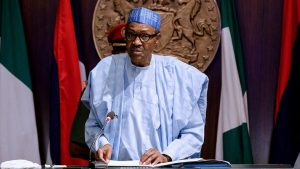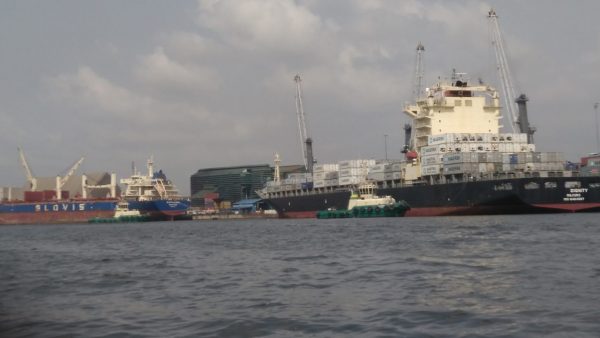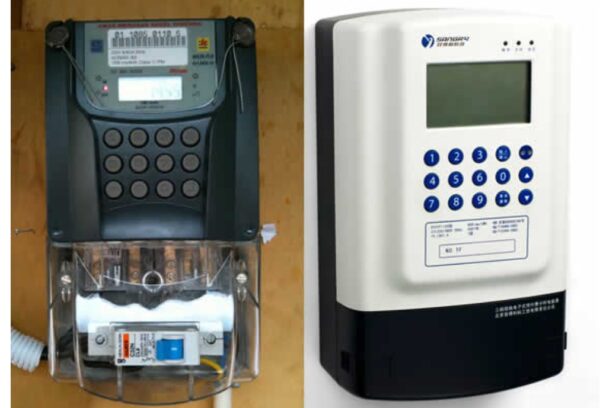Buhari Approves N500billion COVID-19 Intervention Fund

By Kenneth Jukpor
Nigeria’s President, Mohammadu Buhari has approved the establishment of N500 billion COVID-19 Crisis Intervention Fund to provide a holistic fiscal approach to addressing the pandemic in the country.
The establishment of this COVID-19 Crisis Intervention Fund will involve drawing much-needed cash resources from various Special Funds and Accounts, with the approval of the National Assembly.
The N500 billion is proposed to be utilized to upgrade healthcare facilities as earlier identified by the Presidential Task Force on COVID-19 and approved by Mr. President; finance the Federal Government’s interventions to support States in improving healthcare facilities; finance the creation of a Special Public Works Programme; and fund any additional interventions that may be approved by Mr. President.
The Minister of Finance, Budget & National Planning, Mrs. Zainab Ahmed, revealed this in a press statement after a committee meeting directed by President Buhari comprising the Finance Minister, Minister of State for Finance, Budget & National Planning, Minister of State for Petroleum, Governor of Central Bank of Nigeria (CBN) and Group Managing Director of Nigerian National Petroleum Corporation (NNPC).
The President also endorsed the restructuring of the Treasury Single Account (TSA), approving five commercial banks to receive COVID-19 donations in order to better mobilize cash donations from individuals and corporate bodies across the nation.
According to President Buhari, this would create flexibility and build a coalition with financial institutions while maintaining the sanctity of the TSA.
“Going forward, the COVID-19 Donor Accounts, which will form part of the existing TSA arrangement, shall be opened with the following banks: Zenith Bank, Access Bank, Guaranty Trust Bank, UBA, and First Bank. These accounts will be linked to the main TSA for ease of monitoring and reporting,” the President said.
The President also noted that he would be issuing circulars and ministerial orders to ensure that charitable donations by benevolent companies to support for COVID-19 are tax deductible, pursuant to Section 25 of the Companies Income Tax Act.
Noting that Brent oil prices fell to as low as US$19.125/barrel as at Friday last week compared to the 2020 Budget Benchmark of US$57/barrel, he said; “We are revising the benchmark oil price for 2020 to US$30/barrel and oil production to 1.7mbpd. We have similarly had to adjust downwards our Non-Oil Revenue projections including various tax and customs receipts, as well as proceeds of privatisation exercises”
“The Budget Office is currently working on a revised 2020 – 2022 Medium-Term Expenditure Framework / Fiscal Strategy Paper (MTEF/FSP) as well as an Amendment to the 2020 Appropriation Act.”
“FAAC monthly disbursements have declined in recent months to N716.3 billion in January and N647.4 billion in February 2020. Our experience shows that monthly average FAAC receipts must average at least N650 billion for the Federal and State Governments to meet their current obligations. Unfortunately, we project that monthly receipts may decline to below N400 billion, over the next 3 to 6 months”
The President also approved that the Federal Ministry of Finance, Budget and National Planning should engage with the CBN to agree on a Debt and Interest Moratorium for States on Federal Government and CBN-funded loans, in order to create fiscal space for the States, given the projected shortfalls in FAAC allocations.
“Accordingly, once monthly average FAAC receipts fall below a specific threshold, interest and capital payments by States shall be suspended till monthly average FAAC receipts exceed the threshold. The details of this Moratorium will be expeditiously worked out with a view to submitting the final proposals for Mr. President’s guidance and final approvals. This intervention is vital to create fiscal space for the States, as they deal with the health and economic impact of the crisis. States will also be encouraged to explore similar arrangements for their outstanding debts to Commercial Banks” the Minister said.
She observed that the Finance Act, 2019 fortuitously provided significant tax relief for Micro, Small and Medium-sized Enterprises (MSMEs). Corporate tax rates for Medium-sized Enterprise were cut from 30% to 20%, and Small / Micro Enterprises are completely exempt from corporate taxation.
“This tax relief will be invaluable for businesses in the large informal sector that earn N25 million or less in a financial year. The Finance Act, 2019 has also expanded the VAT Exemption List for essential food, medical supplies and other basic items that are critical in our efforts to address the COVID-19 Pandemic,” she said.
With regards the Special Public Works Program, Mr. President has approved that the programme to be extended to all 36 States and the FCT from October 2020 to December 2020.
“The selected time-frame is to ensure that the Programme is implemented after the planting season, and it will result in the employment of about 774,000 Nigerians (that is, 1,000 people per each Local Government). N60 billion in allowances and operational costs has been earmarked from the COVID-19 Crisis Intervention Fund for this initiative”
“The Federal Ministry of Finance is also evaluating how best to extend the Special Public Works Programme, to provide modest stipends for iterant workers to undertake Roads Rehabilitation, Social Housing Construction, Urban and Rural Sanitation, Health Extension and other critical services. This intervention will be undertaken in conjunction with the key Federal Ministries responsible for Agriculture, Environment, Health and Infrastructure, as well as the States, to financially empower individuals who lose their jobs due to the economic crisis,” the Minister said.







